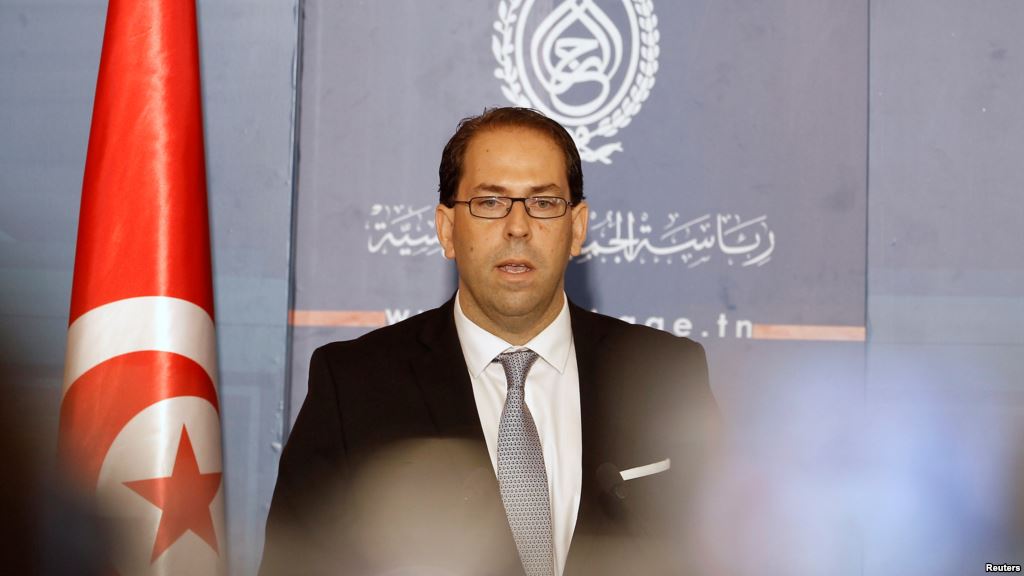Tunis-The official designation of Youssef Al-Chahed to form Tunisia’s unity government has sparked a wave of conflicting reactions among local political parties.
Two parties announced their withdrawal from negotiations aimed at forming a national unity cabinet, in protest against Chahed’s appointment.
Al-Masar and Ash-Shaab political groups announced on Thursday that they would not be represented in the country’s new government.
Al-Masar Social Democratic Party’s Secretary General Samir Al-Tayyeb said that despite his group’s refusal to join the government, it would actively support the implementation of the Carthage agreement.
Ruling coalition parties, including Ennidaa, Ennahda, Afaq Tunis and the Free Patriotic Union, announced their support to the prime minister-designate and their commitment to successful political negotiations to form a unity government.
Tunisia’s President Beji Caid Essebsi named Chahed as prime minister after parliament ousted Habib Essid in a vote of no-confidence because of his handling of economic reforms and security.
In remarks on Thursday, Chahed announced the priorities of the national unity government, which focus on economic, social and security issues.
During the first day of consultations, Chahed met with Tayyeb and the founder of the Republican Party, Najib Al-Chabi, as well as other politicians.
He is scheduled to hold meetings with the country’s various political leaders to agree on the shape of the new government.
Chahed, 41, would present to the country’s main political parties the outcome of his deliberations before August 13 and he would then seek Parliament’s vote of confidence.
Essebsi had been pushing for a new national unity government in an attempt to overcome political infighting in the ruling coalition and more efficiently tackle economic reforms and the threat of Islamist militants.
Chahed obtained a doctorate in agricultural sciences from France. He is also a researcher and university professor in agricultural economics and has taught at several Tunisian and French universities.
